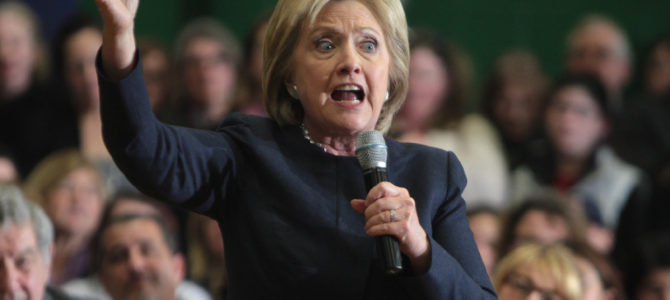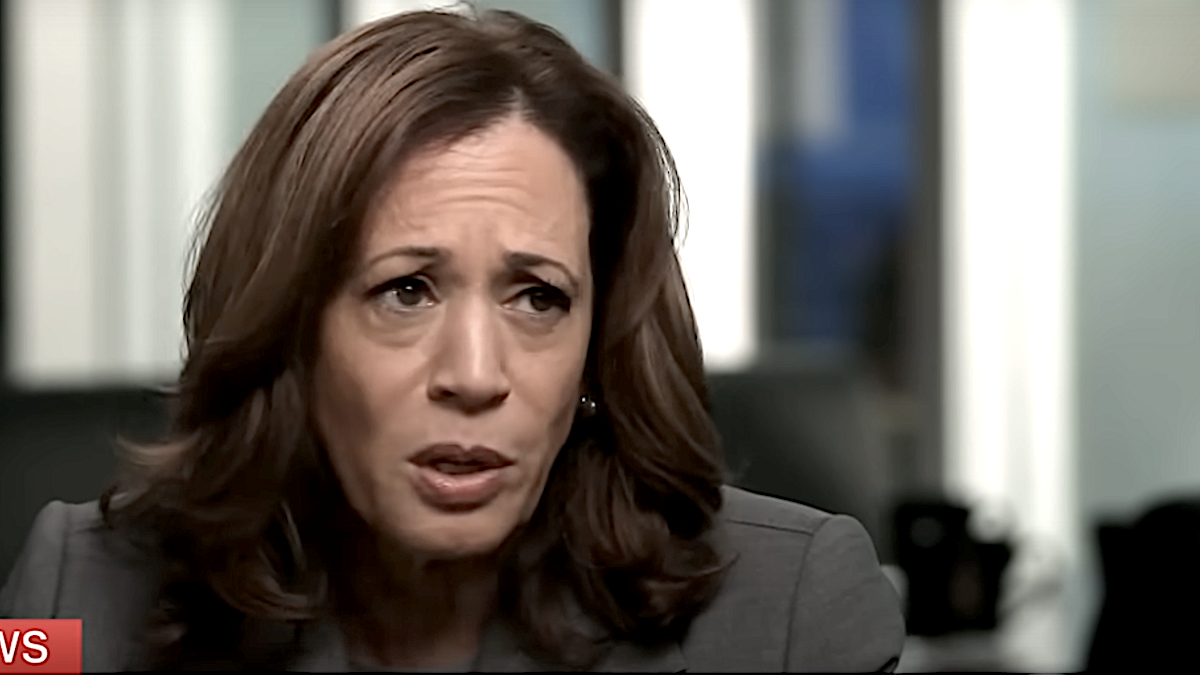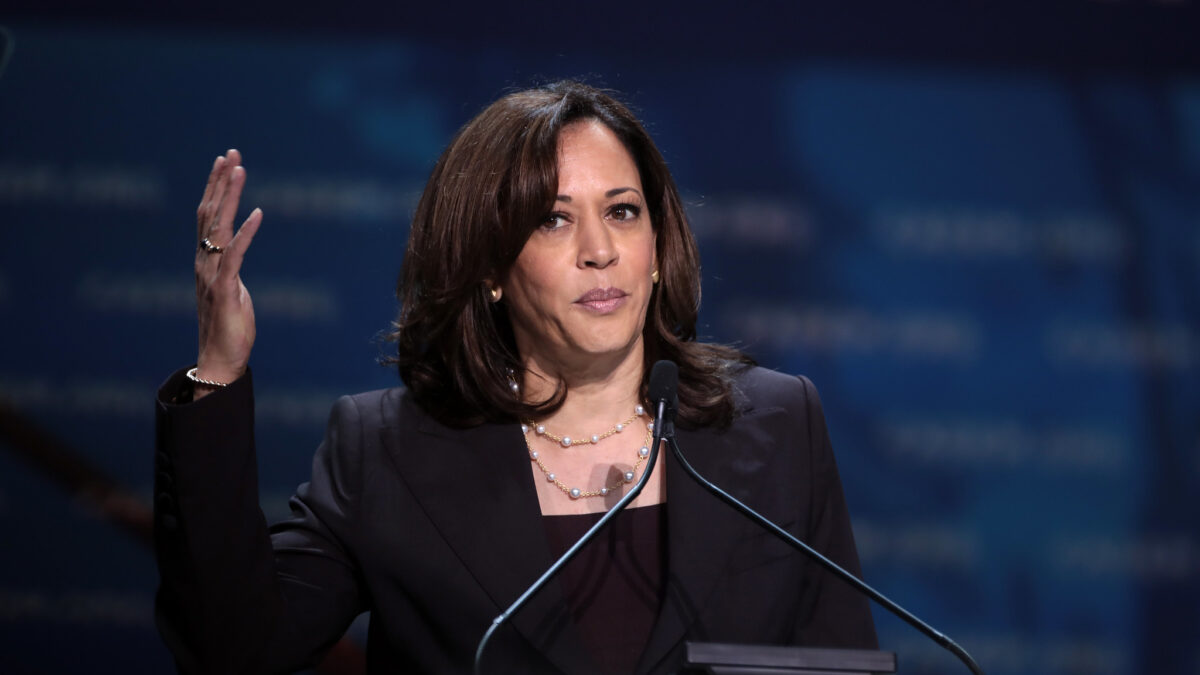
This morning, Sarah Westwood of the Washington Examiner tweeted about Hillary Clinton’s new book “What Happened.” Westwood said she was “[o]nly a couple chapters in & here are all the things Clinton has blamed for her election loss so far”:
- “The audacious information warfare waged from the Kremlin”
- “The unprecedented intervention in our election by the director of the FBI”
- “A political press that told voters that my emails were the most important story”
- “Deep currents of anger and resentment flowing through our culture”
- “The media gave [Trump] free wall-to-wall coverage”
- “Fox News was turning politics into an evidence-free zone of seething resentments”
- “Maybe it’s because I’m a woman, and we’re not used to women running for president”
- “The problems started with history. It was exceedingly difficult for either party to hold onto the White House for more than eight years in a row.”
- “There was also a ‘Clinton fatigue’ to consider.”
Before we go on, I know I’m not the only person who thinks of Fred Willard’s “Wha’ Happened?” monologue in “A Mighty Wind” every time I hear the title of this book, right? Also, punctuation is so important.
Anywho, the list above is just part of Clinton’s litany of reasons she lost, and part of a general defensiveness about her failure to win what most elites felt was a race she couldn’t reasonably lose. In response to Joe Biden’s complaint that she didn’t connect to working-class voters, Clinton responded that Biden was supposed to be doing that while stumping for her on the campaign trail. Well, okay.
“Joe Biden said the Democratic Party in 2016 ‘did not talk about what it always stood for — and that was how to maintain a burgeoning middle class,'” Clinton writes. “I find this fairly remarkable, considering that Joe himself campaigned for me all over the Midwest and talked plenty about the middle class.”
Despite Politico’s generous headline for the piece reviewing the new memoir — “Clinton Blames Herself, and Many Others” — the lede suggests something else entirely in the book:
It’s not really her fault.
That’s the underlying theme of Hillary Clinton’s new book, What Happened, in which the former first lady, New York senator and secretary of state blames a long list of characters for her defeat at the hands of Donald Trump in last year’s presidential election. While admitting she failed to connect with American voters on some level, Clinton also points a finger at her primary opponent Bernie Sanders, WikiLeaks chief Julian Assange, the media and the ‘deplorables’—yes, she doubles down on them.
Now, in her defense, there is a fine line between explaining reasons for a loss and refusing to accept responsibility for it. Most fair-minded people are able to understand that there were a variety of reasons the 2016 election turned out the way it did, and they don’t begrudge Clinton pointing out some of these. Further, while the elite understanding of the race — that Hillary Clinton could not be defeated by Donald Trump — forces the conversation to turn to her failures, we don’t give Trump and his team enough credit for simply running a good race.
Perhaps the WikiLeaks release of real e-mails that confirmed what people disliked about Clinton and the Democratic Party did play a role in her defeat. Perhaps James Comey’s behavior — either by failing to hold her accountable for her mishandling of classified information, or by announcing a reopening of an investigation into her — did remind people of her corruption and her family’s ability to get away with things others do not get away with. Perhaps the media’s elevation of Trump during the primary, and cartoonish hostility to him in the general, did cause people to tune out the media’s commands to vote for her. Perhaps it was President Obama’s failure to get gross domestic product above 3 percent annually at any point in his presidency.
But these things do not explain her inability to connect with voters, or her decision to not campaign enough in the crucial Rust Belt, or her choice to highlight support from Hollywood extremists. Hillary Clinton’s inability to take responsibility for her failure to win is so noticeable that many people make fun of her for it. But it’s also the most human thing she does.
Don’t we all like to blame other people for our failures? My children do it frequently, and so do I. We want to self-justify, and believe that other people are the cause of our inability to triumph over obstacles. Heck, even some of the anger that the media and other people on the Left have with Hillary is probably a bit of disappointment with themselves that they didn’t handle 2016 better. How much easier to blame Hillary Clinton for the Democratic Party’s general struggle to keep a coalition together or put forth a persuasive agenda. Democrats lost more than 1,000 seats during President Obama’s tenure. That’s not Hillary Clinton’s fault.
Literally from the Book of Genesis, we see humans trying to deflect responsibility for their sins or errors in judgment:
Then the Lord God called to Adam and said to him, ‘Where are you?’
So he said, ‘I heard Your voice in the garden, and I was afraid because I was naked; and I hid myself.’
And He said, ‘Who told you that you were naked? Have you eaten from the tree of which I commanded you that you should not eat?’
Then the man said, ‘The woman whom You gave to be with me, she gave me of the tree, and I ate.’
Last week’s gospel reading was about The Good Samaritan, a parable Jesus tells in response to a man’s attempt to self-justify. The parable, a beautiful telling of how Jesus saves us despite our sinful inability to perfectly keep the law, also encourages people to not try to find loopholes for themselves.
Perhaps the saddest aspect of Clinton’s book was referenced by the Politico review above: She doubles down on her “deplorables” comment. Here’s how Politico’s Jon Allen puts it:
Clinton even goes after Trump’s voters again—some of them, anyway. In September 2016, she’d taken a lot of heat for referring to half of Trump backers as a ‘basket of deplorables.’ She issued a half-apology on the campaign trail, saying she shouldn’t have put a number on the percentage of Trump voters who fit in that basket.
In the book, she moves back toward the original comment, perhaps further insulting all Trump voters by portraying them as either deplorable or incapable of understanding her. ‘I regret handing Trump a political gift with my ‘deplorables’ comment,” Clinton writes. “I know that a lot of well-intentioned people were insulted because they misunderstood me to be criticizing all Trump voters. I’m sorry about that. But too many of Trump’s core supporters do hold views that I find—there’s no other word for it—deplorable.’
Not entirely sure the woman who spent the last presidential debate justifying third-trimester partial-birth abortion should be preaching about deplorable views, but you do you, Mrs. Clinton. Still, the worst part about her “deplorables” comment wasn’t the “deplorables” part. From Time’s transcript of her remarks:
[Y]ou could put half of Trump’s supporters into what I call the basket of deplorables. Right?
[Laughter/applause]
The racist, sexist, homophobic, xenophobic, Islamaphobic — you name it. And unfortunately there are people like that. And he has lifted them up. He has given voice to their websites that used to only have 11,000 people — now have 11 million. He tweets and retweets their offensive hateful mean-spirited rhetoric. Now, some of those folks — they are irredeemable, but thankfully they are not America.
She didn’t just call them deplorable. She said they were “irredeemable” and “not America.” Calling people irredeemable is one of the worst things you can do. It was so bad that even the insulter-in-chief picked up on it as particularly hateful in an October 2016 debate.
Shockingly, Clinton did not even address the “irredeemable” slur in her book!
But no one is irredeemable. Not Hillary Clinton, not Donald Trump, not even you, not even me. So let’s end with a bit of good news from 1 John: “If we confess our sins, He is faithful and just to forgive us our sins and to cleanse us from all unrighteousness.”
So rather than focus on the sins of our political class, it might be good to focus just on our own, and the way that we blame others for our own errors.









